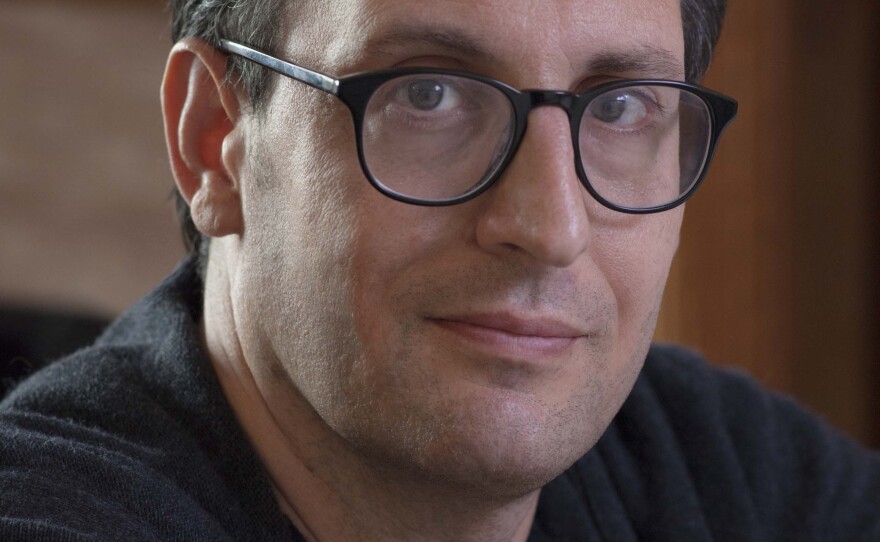"[T]here was no difference between men, in intelligence or race, so profound as the difference between the sick and the well."
That fairly familiar line, a mere fleeting perception from The Great Gatsby, is the bedrock wisdom of Charles Bock's beautiful and harrowing new novel, Alice & Oliver. Alice is a new mother in her 20s who, one day, out of the blue, coughs up bloody phlegm, collapses and is diagnosed with leukemia.
Oliver is her husband. He's a trouper who hangs onto his job and tends their baby daughter, shaves his head in solidarity when Alice goes through chemo, and braves the hellish maze of health insurance to try to secure the care she needs for survival. But, no matter how loving and connected the two of them are, once cancer enters their lives, Alice is the sick one and Oliver isn't.
Bock could have chosen to write this story as an autobiography. As he tells readers in the "Acknowledgments" here, Alice & Oliver is based on a real-life nightmare that began in 2009, when his wife — then a young mother — was diagnosed with leukemia; she died 2 1/2 years later.
The novel's source, no doubt, imbues it with authority, but its literary power derives from Bock's elastic language, stretching from his detailed inventories of extreme medical procedures to the lyric melancholy of his descriptions of mood and place.

The novel opens in 1993. Alice, a fashion designer, and Oliver, a software startup entrepreneur, have moved, at his insistence, to an industrial space in the as-yet ungentrified Meatpacking District in New York. We're told that the neighborhood's "every daylight hour was dominated by dock thugs and frozen slabs; after dark, rotted zombie addicts held court with leather-collar sex club slaves and transvestite streetwalkers ..."
Oliver, though, is handy with screwdrivers and power sanders, and he transforms the desolate living space into a soaring ultramodern loft. But here's the kicker. After Alice is diagnosed, and "when she was at her worst," we're privy to this confession:
[W]hen she needed to blame Oliver for something, for anything, she returned to the promise she couldn't forget, high on his list of guarantees: they'd be insulated; the smells from the warehouses, frozen beef and lingering death, wouldn't reach them. But they did.
Bock's elegance as a writer belies his resolute focus on the elemental meatiness of the human body — its many vulnerabilities and humiliations. The novel follows Alice through her course of treatment for leukemia; those readers fortunate enough to be unfamiliar with medical terms like "induction," "consolidation" and "transplant" are thrust into their baroque and brutal realities as Alice sheds hair and skin and even the energy to hold a thought. And always, on the other side of the "sick and well" dividing line, stands Oliver, guilty and oftentimes, just itching to escape hospital world. Early on in their ordeal, we're told that when relief arrives in the form of Alice's mother:
[T]he clock started eating into [Oliver's] holy and awaited break time. [He'd] hightail it [out] ... grabbing a chicken sandwich from a sports bar [or] ... some sad Chinese lunch from a buffet table of greased food rotting beneath heat lamps. ... Overprocessed, grease-fire-charred garbage: his official coping mechanism. He made sure to binge away from the hospital. ... He wouldn't let her see anything that might cause her faith in him to waver.
But as the months of torment drag on on, Oliver's binges grow more varied and reckless. Bock is unflinching here in his depiction of failures of the body and the spirit. Alice & Oliver is both haunting and raw — a rare novel about cancer that, in this case, doesn't try to find meaning in serious illness, but rather gives its random malevolence its full due.
Copyright 2023 Fresh Air. To see more, visit Fresh Air. 9(MDAzMjM2NDYzMDEyMzc1Njk5NjAxNzY3OQ001))





